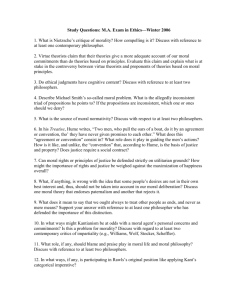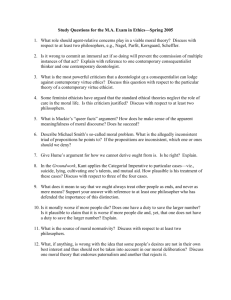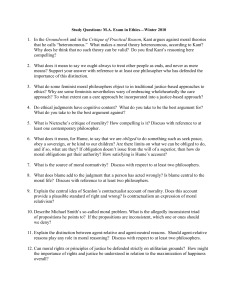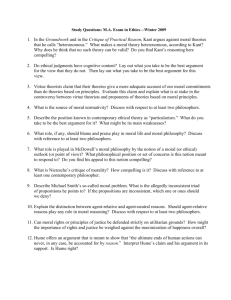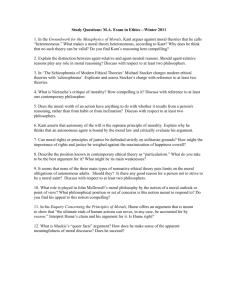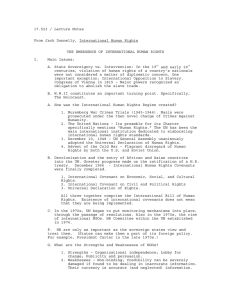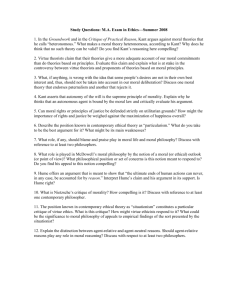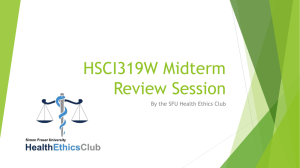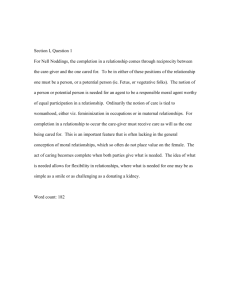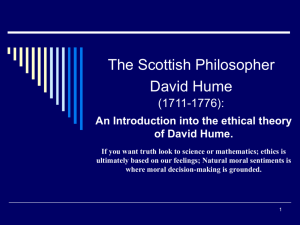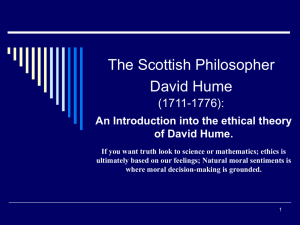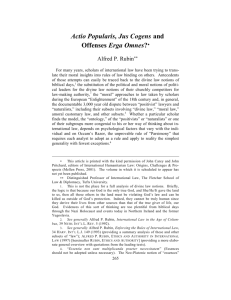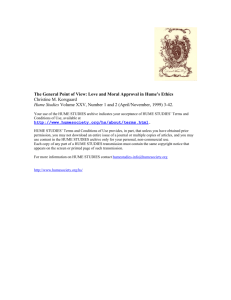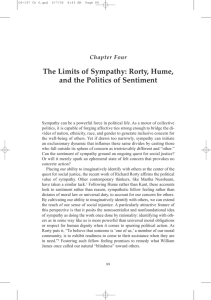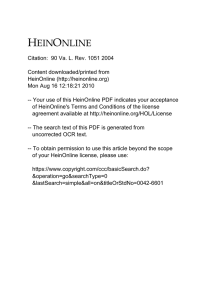doc
advertisement
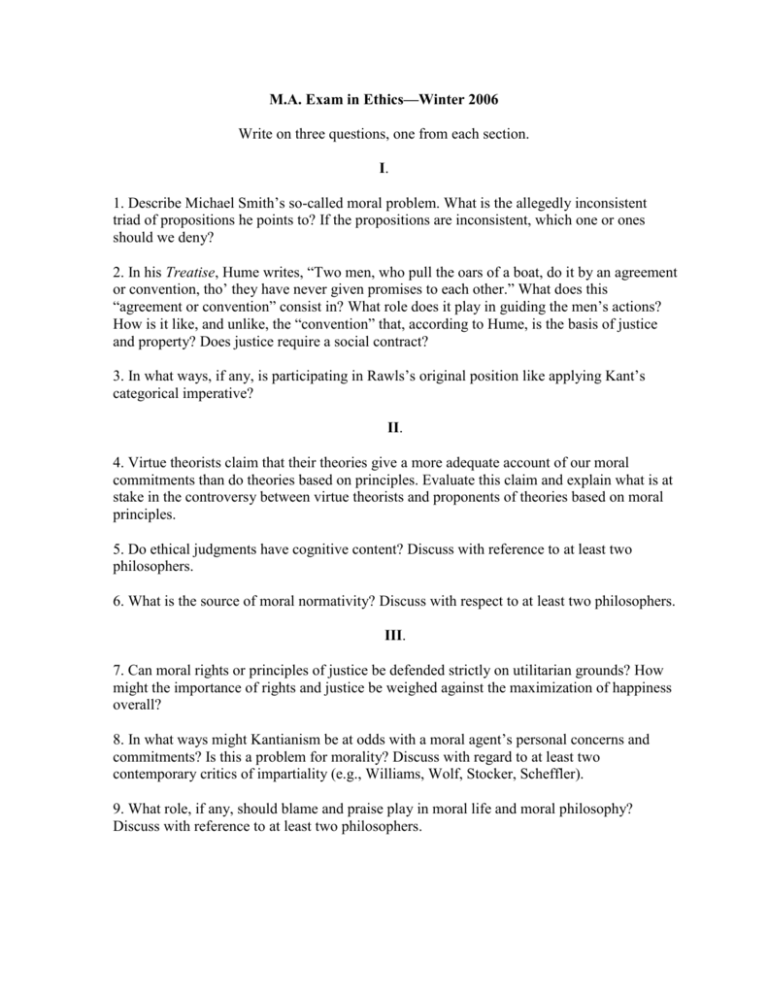
M.A. Exam in Ethics—Winter 2006 Write on three questions, one from each section. I. 1. Describe Michael Smith’s so-called moral problem. What is the allegedly inconsistent triad of propositions he points to? If the propositions are inconsistent, which one or ones should we deny? 2. In his Treatise, Hume writes, “Two men, who pull the oars of a boat, do it by an agreement or convention, tho’ they have never given promises to each other.” What does this “agreement or convention” consist in? What role does it play in guiding the men’s actions? How is it like, and unlike, the “convention” that, according to Hume, is the basis of justice and property? Does justice require a social contract? 3. In what ways, if any, is participating in Rawls’s original position like applying Kant’s categorical imperative? II. 4. Virtue theorists claim that their theories give a more adequate account of our moral commitments than do theories based on principles. Evaluate this claim and explain what is at stake in the controversy between virtue theorists and proponents of theories based on moral principles. 5. Do ethical judgments have cognitive content? Discuss with reference to at least two philosophers. 6. What is the source of moral normativity? Discuss with respect to at least two philosophers. III. 7. Can moral rights or principles of justice be defended strictly on utilitarian grounds? How might the importance of rights and justice be weighed against the maximization of happiness overall? 8. In what ways might Kantianism be at odds with a moral agent’s personal concerns and commitments? Is this a problem for morality? Discuss with regard to at least two contemporary critics of impartiality (e.g., Williams, Wolf, Stocker, Scheffler). 9. What role, if any, should blame and praise play in moral life and moral philosophy? Discuss with reference to at least two philosophers.
